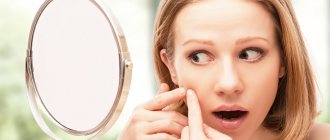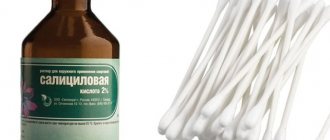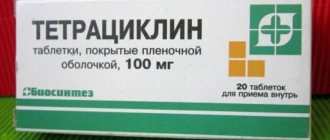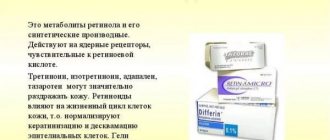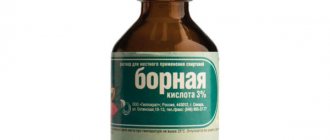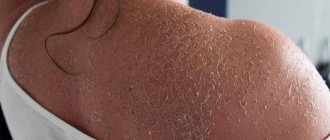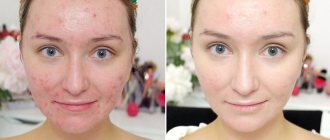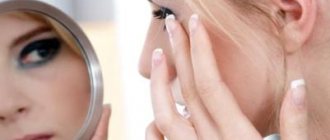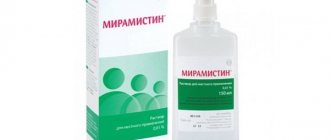Roaccutane: acne treatment in our clinic
In exceptional cases, for severe forms of acne, we prescribe Roaccutane, a systemic drug that is a derivative of vitamin A.
Our clinic has been working with Roaccutane for more than 24 years. Over the years, more than 1.5 thousand acne patients have been treated. Currently, Roaccutane for internal use is one of the most famous drugs in the world for the treatment of the most complex and severe forms of acne. This is due to its high efficiency and lasting effect. Timely administration of Roaccutane is an important point in the prevention of scars, spots, and marks after acne.
The drug is economical, the price of Roaccutane is much cheaper than the cost of long-term, external only acne treatment from a dermatologist and cosmetologist. Reviews of Roaccutane from patients who have undergone treatment with the drug and followed the recommendations of their attending physicians are always very positive. Long-term, lasting effect in 90% of patients.
Our experience with Roaccutane over the years has been presented at scientific conferences, publications in dermatological and cosmetology journals.
Roaccutane: acne treatment in our clinic Read more…
We present to your attention our article on the features of treatment of severe acne with Roaccutane, presented in the scientific journal “Clinical Dermatology and Venereology”, 1, 2003.
General information. Indications for use
Roaccutane is a drug belonging to the category of retinoids; it is a synthetic analogue of vitamin A. Its main active ingredient is isotretinoin. Beeswax and soybean oils are used as auxiliary ingredients. Tablets are available in capsule form, in dosages of 10 and 20 mg. The drug is available in pharmacies without a prescription, but its use is recommended only as prescribed by a specialist.
As a rule, it is prescribed to the patient when other methods of eliminating acne have not given the desired result (folk recipes, ointments, other tablets, including antibiotics). Indications for the use of capsules are severe acne, numerous purulent boils, and rosacea.
Prescription during pregnancy and lactation
Pregnancy is an absolute contraindication for Roaccutane therapy. If pregnancy occurs, despite warnings, during treatment or within a month after the end of therapy, there is a very high risk of giving birth to a child with severe malformations.
Isotretinoin is a drug with a strong teratogenic effect. If pregnancy occurs during a period when a woman takes isotretinoin orally (at any dose and even for a short time), there is a very high risk of giving birth to a child with developmental defects.
Roaccutane is contraindicated in women of childbearing potential unless the woman's condition meets all of the following criteria:
- she must suffer from severe acne that is resistant to conventional treatments;
- she must certainly understand and follow the doctor’s instructions;
- she must be informed by the doctor about the danger of pregnancy during treatment with Roaccutane, within one month after it, and urgent consultation if pregnancy is suspected;
- she should be warned about the possible ineffectiveness of contraceptives;
- she must confirm that she understands the precautions;
- she must understand the need and continuously use effective methods of contraception for one month before treatment with Roaccutane, during treatment and for a month after its completion (see section “Interaction with other drugs”); it is advisable to use 2 different methods of contraception at the same time, including barrier; she must have received a negative result from a reliable pregnancy test within 11 days before starting the drug; A pregnancy test is strongly recommended monthly during treatment and 5 weeks after the end of therapy;
- she should start treatment with Roaccutane only on the 2-3 day of the next normal menstrual cycle;
- she must understand the need for mandatory visits to the doctor every month;
- when treated for relapse of the disease, she must constantly use the same effective methods of contraception for one month before starting treatment with Roaccutane, during treatment and for a month after its completion, and also undergo the same reliable pregnancy test;
- she must fully understand the need for precautions and confirm her understanding and desire to use reliable methods of contraception as explained to her by the doctor.
Use of contraception as directed above during treatment with isotretinoin should be recommended even in women who do not routinely use contraception due to infertility (except in patients who have had a hysterectomy), amenorrhea, or who report not being sexually active.
The doctor must be sure that:
- the patient suffers from a severe form of acne (nodulocystic, conglobate acne or acne with a risk of scarring); acne that does not respond to other types of therapy;
- a negative result from a reliable pregnancy test was obtained before starting the drug, during therapy and 5 weeks after the end of therapy; the dates and results of the pregnancy test must be documented;
- the patient uses at least 1, preferably 2 effective methods of contraception, including a barrier method, for one month before starting treatment with Roaccutane, during treatment and for a month after its completion;
- the patient is able to understand and fulfill all of the above requirements for pregnancy protection;
- the patient meets all of the above conditions.
Pregnancy test
According to current practice, a pregnancy test with a minimum sensitivity of 25 mIU/ml should be performed in the first 3 days of the menstrual cycle:
Before starting therapy:
To rule out possible pregnancy, the result and date of the initial pregnancy test must be recorded by a doctor before starting contraception. In patients with irregular menstruation, the timing of a pregnancy test depends on sexual activity and should be performed 3 weeks after unprotected intercourse. The doctor should inform the patient about contraceptive methods.
A pregnancy test is carried out on the day of prescription of the drug Roaccutane® or 3 days before the patient’s visit to the doctor. The specialist should record the test results. The drug can only be prescribed to patients receiving effective contraception for at least 1 month before starting therapy with Roaccutane®.
During therapy:
The patient must visit the doctor every 28 days. The need for monthly pregnancy testing is determined in accordance with local practice and taking into account sexual activity and previous menstrual irregularities. If indicated, a pregnancy test is performed on the day of the visit or three days before the visit to the doctor, the test results must be recorded.
End of therapy:
5 weeks after the end of therapy, a test is performed to exclude pregnancy.
A prescription for Roaccutane® for a woman capable of childbearing can be issued only for 30 days of treatment; continuation of therapy requires a new prescription of the drug by a doctor. It is recommended that a pregnancy test, writing a prescription and receiving the drug be carried out on the same day.
The drug Roaccutane® should be dispensed at the pharmacy only within 7 days from the date of issuing the prescription. To help physicians, pharmacists and patients avoid the risk of fetal exposure to Roaccutane®, the company aims to warn about the drug's teratogenicity and emphasize the absolute mandatory use of reliable contraceptive measures for women of childbearing age. The program contains the following materials:
Principle of action, dosage
How does Roaccutane help in fighting acne? The main principle of its action is based on the suppression and normalization of sebum production. Additional positive properties include a slight antiseptic effect.
The drug is a very aggressive drug, therefore the dosage and duration of treatment with it is determined, first of all, not by the instructions, but by the appointment of a specialist based on the results of examinations and tests . The standard diagram looks like this:
- First stage: 0.5 mg/kg/day – once with food for 14-30 days.
- Second stage: 1 mg/kg/day – once with food for 3 – 4 months.
The total duration of treatment ranges from 4 to 6 months. In particularly severe cases, a dose of 2 mg/kg/day is allowed, but this amount is the maximum.
Skipping in taking Roaccutane
Hello! I have been taking Roaccutane under the supervision of a doctor for almost 7 months, weighing 60 kg, dose 30 mg per day. During the intake process there were omissions: I didn’t take it at all for 3 days, and several times (I can’t say for sure, about 8 times) I missed 10 mg, i.e. in the morning 20 mg. I drank, and in the evening I didn’t drink 10 mg (it turned out to be 20 mg per day), but these omissions occurred at different times. Will this somehow affect the result (the result is excellent, I’m already finishing the treatment)? - Anna
2010
Dear Anna! I don’t think that missing a few days of treatment with Roaccutane will have any effect on the final result of the treatment. Dermatologist Panarin O.V.
Contraindications and precautions
Reviews about the use of this product are quite contradictory. On the one hand, it allows you to achieve a significant effect in cases where other means are virtually powerless, on the other hand, it has a huge number of very serious side effects. When starting to treat acne with a product such as Roaccutane, you must weigh all the possible risks. You can minimize possible consequences using a number of reasonable restrictions, so medicinal capsules should not be combined with:
- vitamin A;
- tetracycline;
- contraceptives containing large amounts of estrogen.
During the course of using capsules and for a certain period after it, it is not recommended to stay in the sun for a long time, or go outside without using sunscreen. The thing is that Roaccutane promotes thinning of the skin, making it very delicate and susceptible to external influences (pigment spots or scars may appear). For the same reasons, hair removal, cosmetic surgery and a number of other manipulations are prohibited.
Not everyone can use this medicine. Let's talk about in what cases Roaccutane is not used for acne? The list of restrictions is quite impressive in size. Here are some contraindications (a full list can be found in the instructions). So, do not use the tablets if:
- planning pregnancy, pregnancy itself and breastfeeding;
- liver and kidney diseases;
- tendencies to mental disorders, suicide, depression;
- sensitivity or allergy to one of the components of the drug.
Interaction with other drugs
When using the drug, it is necessary to take into account interactions with other medications:
- Due to a possible increase in the symptoms of hypervitaminosis A, the simultaneous administration of Roaccutane and vitamin A should be avoided.
- Since tetracyclines can also cause increased intracranial pressure, their use in combination with Roaccutane is contraindicated.
- Combined use with topical keratolytic or exfoliative drugs for the treatment of acne is contraindicated due to the possible increase in local irritation.
- Isotretinoin may reduce the effectiveness of progesterone preparations, so contraceptives containing low doses of progesterone should not be used.
Roaccutane and pustular diseases
Hello, dear Oleg Valerievich. Please tell me, is it possible to develop hidradenitis and panaritium while taking Roaccutane? I’ve never suffered from either one or the other, but now, when I’ve already taken almost two-thirds of the cumulative dose of Roa, I’m exhausted with hidradenitis and panaritium.. – Anna
2009
Dear Anna! Yes, the listed side effects are possible during treatment with Roaccutane, because this drug is unsafe. Before prescribing Roaccutane, a dermatologist must carefully assess the balance of possible benefits and risks. It is necessary to prescribe antibacterial therapy to treat the complications that have arisen (withdrawal of Roaccutane will not lead to their disappearance). Dermatologist Panarin O.V.
Roaccutane: 3 questions
Hello. I have been taking Roaccutane for 1 month at a dosage of 30 mg/day (my weight is 60 kg) while simultaneously taking Vitamin E 400 mg/day and Yarina hormonal tablets. The doctor prescribed them to reduce the possible side effects of Roaccutane, and said that I would need to take it at this dosage for 4 months. The doctor diagnosed moderate UHD. Before Roaccutane, I was treated for 3 years with all possible methods - gels, lotions, ultraviolet irradiation of the blood, ozone therapy, etc. But nothing helped! Many doctors refused to treat me with it, explaining that Roaccutane has a very negative effect on the reproductive system and can cause ovarian tumors and dysfunction. I have several questions for you: 1. Is this true, and have there been such cases in your practice? 2. Do you consider this treatment regimen appropriate: Roaccutane with simultaneous administration of hormones + vit. E (in this dosage, and in general). 3. How much impact can this have on my liver, since I’m only 20 years old? Side effects include dry mucous membranes in the first 2 weeks, nausea (happened once a month), headache. I can say that after a month, improvements are observed, but very insignificant, what could this be due to? Fake drug? Thank you in advance! - Victoria
2010
Dear Victoria! I strongly doubt that ultraviolet irradiation of blood and ozone therapy are effective for acne, as you have seen from your own experience. 1. Roaccutane itself, as a derivative of vitamin A, has an antitumor effect; ovarian dysfunction is not included in the list of side effects. Roaccutane has a strong negative effect on the developing fetus, to which the active substances of the drug enter the mother’s bloodstream; they do not have a negative effect on the reproductive organs of women and men. When taking Roaccutane, you definitely need “double” contraception, including a condom, incl. and for the reason that it cannot be completely ruled out that Roaccutane, by acting on liver enzymes, can reduce the contraceptive effectiveness of COCs (the active ingredients of the drugs: isotretinoin and ethinyl estradiol, are mainly metabolized with the participation of cytochrome P450 3A4 and by aromatic hydroxylation). 2. It was previously assumed that vitamin E could reduce the side effects of Roaccutane, but relatively recently it was proven that this is not the case. When taking the drugs Yarina and Roaccutane together, side effects may increase, for example, dry skin. 3. If there are no liver diseases, the biochemical parameters of the liver are normal (regular tests), and you do not abuse alcohol while taking Roaccutane, then negative consequences for the liver are unlikely. Significant improvement from treatment with Roaccutane should be expected after 2 months. Dermatologist Panarin O.V.
Roaccutane and the sun
Hello, please tell me what will happen if I immediately go to the sea after finishing taking Roaccutane (after 5.5 months)? Is it possible to sunbathe in this case? – Diana
2009
Dear Diana! I recommend using sunscreen. While taking Roaccutane and for some time after its completion, increased sensitivity of the skin to sunlight is possible - inflammation of the skin occurs. Roaccutane significantly increases the likelihood of scarring after sunburn. Dermatologist Panarin O.V.
Compatibility of Roaccutane with alcohol
Hello, please tell me what is the danger of taking the drug Roaccutane together with drinking strong alcoholic drinks? Can taking Roaccutane cause infertility in a man? - Irina
2009
Dear Irina! Roaccutane may have a toxic effect on the liver (rarely drug-induced hepatitis occurs). If Roaccutane and alcohol are taken together, this may increase the toxic effect on the liver. In addition, both Roaccutane and alcohol can significantly increase the level of fats (triglycerides) in the blood, which can lead to inflammation of the pancreas (pancreatitis), which in some cases is life-threatening. Roaccutane does not have a negative effect on the reproductive organs of women and men; infertility does not occur from the use of this drug. Dermatologist Panarin O.V.
Roaccutane
Dear Oleg Valerievich! I am 20 years old. Since adolescence, acne on the face, back and chest. I don't know what the severity is. Most likely average. I have terribly oily skin on my face. I used Skinoren - no effect. The doctors did not prescribe any examinations (hormones, gastrointestinal tract, etc.). The doctor prescribed me Roaccutane, but did not take any tests before starting the course. I just took my word for it that “I don’t seem to have chronic liver or kidney diseases.” Now I'm worried. I should now see a dermatologist in a month and have a blood test. I have been taking Roaccutane for the third day, one tablet twice a day. Weight 50 kg. Sorry if I'm wasting your time, but I'm very worried about the consequences. Please tell me, is this drug very harmful to the body? Can Roaccutane damage your liver? Unfortunately, our doctors are not very attentive to their patients. And also, is treatment with Roaccutane often ineffective? That is, the acne soon returns again or is not treated at all? And what about oily skin? Thank you in advance! - Olga
2009
Dear Olga! I believe that before prescribing Roaccutane in a standard dosage, it is necessary to undergo a biochemical blood test for liver enzymes and fats. In addition, women are also required to undergo a hCG test to exclude pregnancy. The drug relatively rarely causes serious side effects (for example, drug-induced hepatitis may occur). Treatment with Roaccutane is rarely ineffective, but it must be strictly justified (not prescribed to everyone) and carried out under regular clinical and laboratory control (examinations by a dermatologist, tests, etc.). Skin oiliness during treatment with Roaccutane is significantly reduced, after completion it gradually increases, but usually becomes slightly less than before therapy. Dermatologist Panarin O.V.
